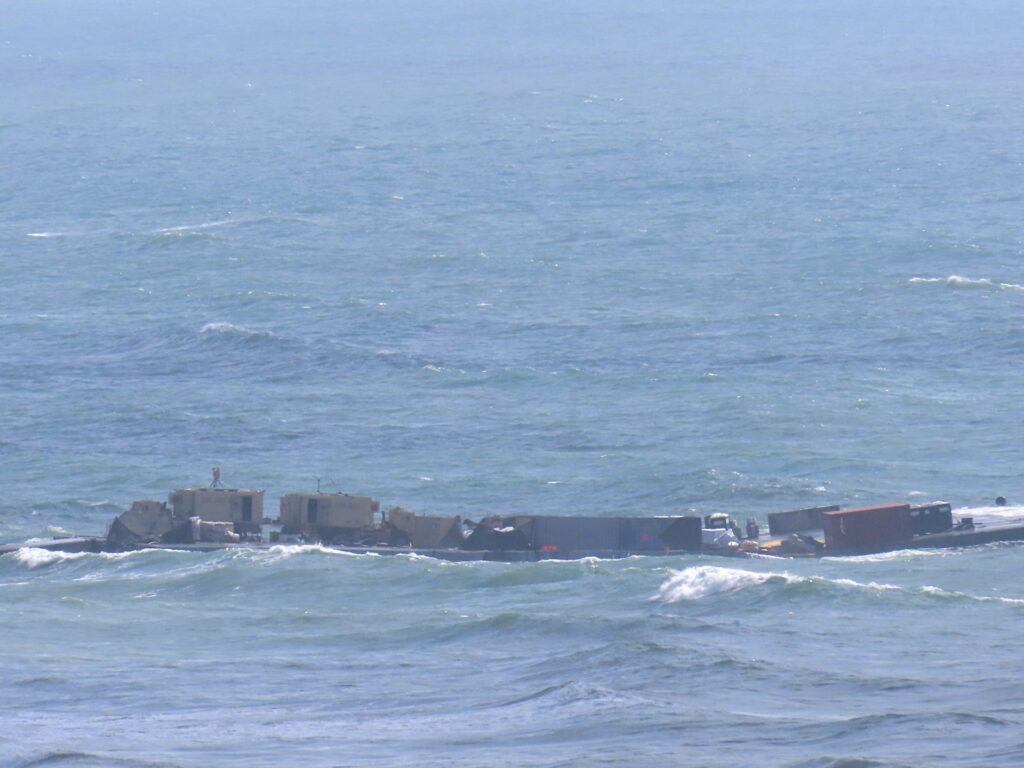The American floating dock, which is often disrupted and affected by weather conditions, has not yet provided the facility that US President Joe Biden promised last March to deliver humanitarian aid to the Gaza Strip.
So far, only 4,500 tons of aid have been transported through the American dock – which cost $230 million to build – to Gaza, and that is much less than the “significant increase” promised by Biden in the sector, whose crossings Israel closes and controls the entry of aid into.
In light of the Israeli restrictions, Washington established its floating dock, which began operating at the beginning of last May, but it was disrupted after a few days due to weather conditions.
The floating dock was put back into service on June 7, but it soon also malfunctioned due to weather conditions, costing the US Department of Defense millions of dollars to repair in order to deliver a few tons of aid.
‘An expensive distraction’
In this regard, Director of Humanitarian Affairs at the American Center for Strategic and International Studies, Michelle Struck, told Agence France-Presse that it has become clear that the floating dock in Gaza is nothing more than a very costly distraction that diverts attention from what is necessary and legally required.
Struck explained that the American focus on the floating dock distracts from the safe and unhindered access of humanitarian organizations to provide aid to the people of Gaza who suffer unprecedented levels of deprivation.
She stressed that the United States, through its focus on the floating dock and the operations of dropping aid from the air, wasted time and energy on decision-makers, as well as $200 million of American taxpayer money.
She said, “The people of Gaza do not need anything similar to assistance, but rather the arrival of actual assistance,” adding that Washington supported a project that looked beautiful on paper, but did not lead to the arrival of aid to the Palestinians.
She pointed out that land crossings are the best and fastest solution to provide aid access to the residents of the Gaza Strip, some of whom are living in famine-like conditions.
Closing crossings
Although Washington, the largest supporter of Israel, calls for facilitating the entry of aid into Gaza, it did not pressure Tel Aviv to open the land crossings and abolish restrictions on the entry of aid. Since May 7, the occupation army has taken control of the Rafah crossing with the start of its operation in the city, despite international warnings. Preventing the entry of food and medical aid and the exit of the injured.
As for the Kerem Shalom crossing, Israel controls the small amounts of aid that enters through it, while the United Nations confirmed that Israel prevents the entry of essential aid into the Strip, such as insulin pens and surgical supplies, while aid trucks are piled up next to the Rafah and Kerem Shalom crossings.



